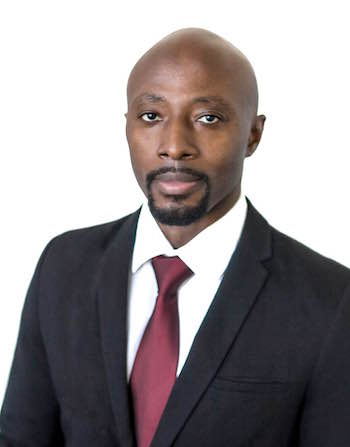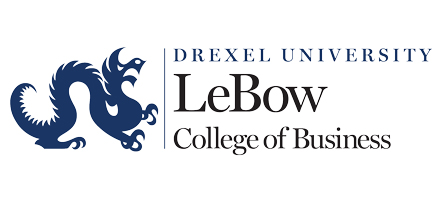
Charles Cooper, Johnson EMBA Class of 2017, is running for a seat on the New York City Council. Courtesy photo
Charles Cooper’s family lost everything in the Liberian civil war that raged from 1989 to 1997. When he was 12, he, his mother, and his two siblings fled to the U.S. with practically nothing, settling first in New York before moving north to Rhode Island.
Which means Cooper knows what it’s like to struggle, to live in a strange new place, and to constantly have to prove yourself. And that is exactly what he has done at every level, from graduating with a bachelor’s degree in electrical engineering from the University of Rhode Island, to earning a master’s degree in leadership and administration from the College of Saint Rose, to his current pursuit, an executive MBA at Cornell University.
Along the way Cooper, 35, has worked in the defense industry, in tech, and for the New York Department of Education. He co-founded a Harlem-based infrastructure development firm, AirRail, which currently has a bid on New York’s massive Penn Station redevelopment — the only minority-owned firm in that very select group. And Cooper is chairman of the board of the African Advisory Council of the Bronx, a group that works with elected officials from city and state government on policy issues that affect the African community in New York — the nation’s largest.
It is this last experience that may have done the most to spark Cooper’s political interests. Now, Cooper hopes 2017 will see him make two big achievements: his EMBA, and a February election to a seat on the New York City Council, representing District 9, which includes Manhattan neighborhoods West Harlem, Morningside Heights, Manhattanville, and Hamilton Heights.
“When you see programs that focus on job creation and there’s not enough money for them — and we have one of the highest unemployment rates in Harlem, in some areas it’s about 20% — seeing all these things that are happening in the community and me being limited by my role, running for a City Council seat just made sense,” Cooper tells Poets&Quants. “I would have direct impact in bringing resources to the community, I would have direct impact in making sure that local companies, local businesses, minority-owned businesses benefit from economic gains that are happening in Harlem.”
COLLABORATIVE SKILLS IN WORK AND SCHOOL
Cooper’s expertise was always in engineering, from his undergrad days in Rhode Island to his work for Raytheon in the early 2000s. But in founding AirRail, he discovered that “engineering and running and operating your own business are two different things. That’s why I decided to go back and get my MBA. I saw there was value in doing that. I spoke to some of my mentors in the construction industry and they all suggested it, especially if my long-term goal is to watch and be able to see this company grow and become successful.”
AirRail’s focus, Cooper says, is on creating consortiums to bid on mega-projects: Besides Penn Station, the firm also has bid on the $1 billion redevelopment of the University of New York’s Long Island College Hospital campus. To bring together disparate groups in design, operations, and engineering, AirRail — and Cooper in particular — have to use their diplomatic skills. In short, they must excel in collaboration.
Which is what appealed to Cooper most about Cornell. “The reason I chose Cornell is because it is more intimate,” he says. “I got a chance to speak with some alumni and some of the students and what I saw — and it’s become more and more relevant now — is a very collaborative culture in which you have administrators hand in hand working with some of the students, and businesses and professors bringing their resources to bear.
“That was the type of culture I was looking for because I’m a business owner and I’m looking to grow my business and expand my network — but I’m also looking to explore other business opportunities as well and to be in a culture where people are willing to share and provide certain resources and contacts.”
‘IF YOUR COMMUNITY IS NOT TOGETHER … WHAT GOOD IS MAKING A BUCK?’
Charles Cooper’s resume is a long list of impressive accomplishments — most with the flavor of “giving back.” He served as a teacher and administrator in New York public schools for five years. He was vice chair of the Manhattan Community Board 9, where he worked on Columbia University’s $7 billion campus expansion, focused on inclusion of local businesses. He led the restructuring of West Harlem Local Development Corporation, which now gives millions a year to nonprofit organizations in the Harlem community. Last year he appeared on CNN, MSNBC, Al Jazeera, and other national news programs to address the impact of Ebola on African communities in the U.S. and Africa.
Make no mistake, Cooper says: He’s a businessman. But he’s also passionate about his community. “For me business is great, but if your community is not together and you’re not doing something to heal the social ills that are happening, then what good is working and making a buck?” he asks.
Moving into politics was a logical step, Cooper says. Lack of funds is the sword constantly hanging over the head of community development agencies, and election to the city council will mean that he has a big say in where the money goes.
“I’ve always sought to serve my community,” he says of the Harlem neighborhood where he’s lived for the past 10 years. “And I enjoy doing all of that. I’ve done that all my life, because I see it as my responsibility — but this opportunity came along, and it’s not about me, it’s about the community. We work hard in the community, but sometimes in order to do more you must take that next step. A city councilperson directly affects budgets and recruitment budgets, monies that go to your community, and so some of these programs that we’ve been fighting for, various development and mentoring programs in the community, it’s always unfortunate when you see the budget for those organizations cut short because a lot of folks need those mentoring programs or they’re out on the streets with nothing to do.
“The community is supporting me and I have faith that as long as I continue just talking to folks and sharing the message, I will be successful,” Cooper continues. “Part of what happens in these elections, there is such low voter turnout. A part of it is that people are not educated on the importance of actually coming out to vote, so you have a population of 120,000 and about 5,000 people show up to vote. It’s not representative of the community, so I see my role as, among other things, educating folks on getting out to vote and how it impacts you, whether you’re a senior or you just turned 18.
“Because in a lot of different countries, folks do not have the same liberties that we do here. And that’s something that I’ve unfortunately seen.”
SEE ALSO P&Q’s 2016 RANKING OF THE BEST AMERICAN EMBA PROGRAMS





Questions about this article? Email us or leave a comment below.